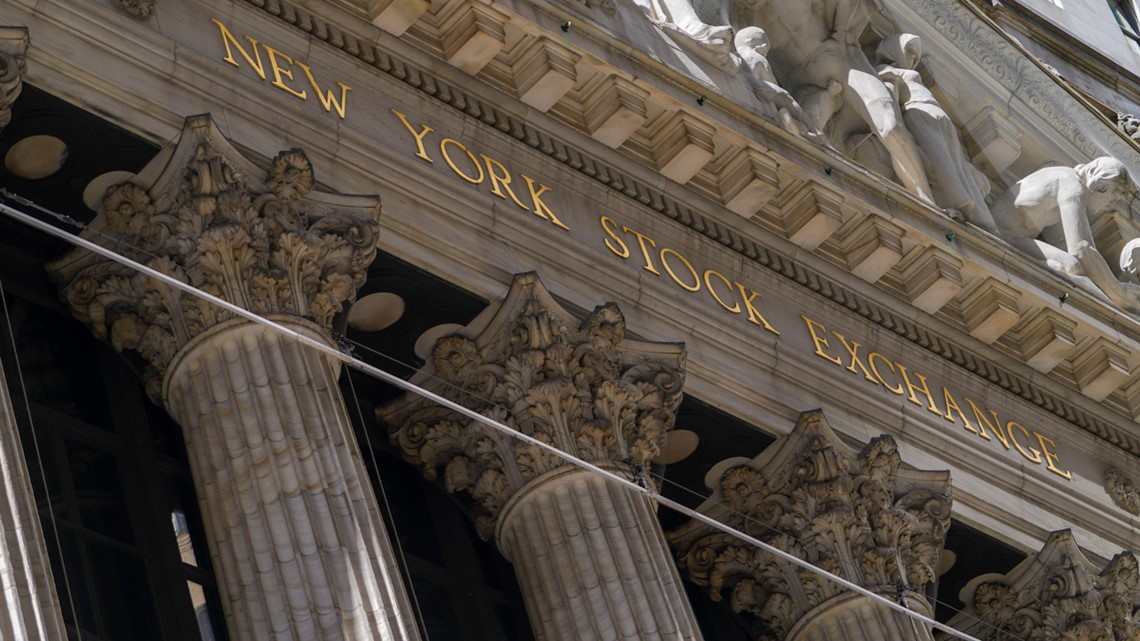The S&P 500 fell 1.8% after falling further in the morning to its lowest level since late 2020.
NEW YORK — On Thursday, stocks on Wall Street returned to the decline worries about a possible recession and rising bond yields put pressure back on the markets.
The S&P 500 was 2.5% lower in afternoon trade and fell to its lowest level since late 2020 in the morning. The washout has the index on track to erase its big rally from the day before. That’s when the Bank of England’s tough moves to rein in a sharp spike in UK yields led to a global outpouring of relief among investors.
It seems that this peace lasted only a day. For markets to really rise after U.S. stocks have lost more than 20% of their value this year, analysts say investors will need a break from the high inflation that has gripped the world.
That hasn’t happened yet, and more data coming in Thursday suggests otherwise. And that means the Federal Reserve and other central banks will likely continue to raise interest rates to slow their economies in hopes of reducing inflation. In doing so, they are too risking recession if they go too far.
The Dow Jones Industrial Average was down 557 points, or 2.5%, at 29,126 as of 3:28 p.m. ET, while the Nasdaq Composite was down 3.4%.
Stocks fell as Treasury yields rose and pressured markets. The 10-year Treasury yield was at 3.76% in the afternoon, down from 3.73% late Wednesday. It was above 3.85% earlier in the morning.
The yield on two-year Treasuries, which more closely tracks expectations for Fed moves, rose more aggressively to 4.18% from 4.14%.
A stronger-than-expected U.S. labor market report bolstered expectations for the Fed to continue raising rates and keep them high for some time, possibly through 2023.
Fewer workers applied for unemployment benefits last week than expected by economists. This is good news for workers in general and suggests that layoffs are not widespread despite concerns about the economy. But it also keeps upward pressure on inflation, giving the Fed more reason to keep rates high.
“When you look at the employment data, the economy doesn’t look like it’s softening,” said Brad McMillan, chief investment officer at Commonwealth Financial Network. That undermines any investor’s hopes that a weakening economy might persuade the Fed to ease interest rates.
The Fed’s overnight benchmark interest rate has already increased to a range of 3% to 3.25% from virtually zero in March. This is the highest level since 2008, and the Fed is expected to raise it by at least one more percentage point by early 2023.
Rate hikes have a notoriously long lag before they affect the economy as a whole. But they are already causing great pain to the housing industry, where average rate on a 30-year fixed mortgage has more than doubled to 6.70% over the past 12 months.
Higher interest rates not only raise the possibility of a recession, but also lower the prices of stocks and other investments regardless of what the economy is doing. Investments that are seen as the most expensive or riskiest tend to take the biggest hit.
Economic reports around the world also confirmed expectations of higher rates going forward. In Germany, for example, inflation readings were hotter than expected.
Meanwhile, in the UK, Prime Minister Liz Truss defended her plan to cut taxes even though critics said it would worsen inflation. The plan sent UK bond yields soaring, prompting the Bank of England to pledge to buy on Wednesday, but it would take a lot of UK government bonds to lower yields. The bond-buying announcement came just before the central bank planned to do the opposite and sell some of the bonds it had previously bought to support the economy.
Even beyond worries about central banks and rates, many other issues continue to hang over markets.
A inflation of the US dollar has risen so quickly against other currencies that investors are worried something might break somewhere in global markets. Europe’s already struggling economy appears to be facing more pressure from the outside high energy prices among allegations of intentional damage to pipelines gas supplies from Russia to Germany. And in the US, investors worry that one of the main levers for setting stock prices could be under threat as corporate profits buckle under higher interest rates, a slowing economy and high inflation.
CarMax, the auto retailer, fell 23.7%, the biggest loser on the S&P 500, after it reported a lower-than-expected profit in the three months to August. It says the used car market as a whole is challenging as higher interest rates make it more expensive to get car loans.
https://www.10tv.com/article/news/nation-world/wall-street-drops-again/507-220b9725-e4b9-49d6-9a83-cdc41bb5da35



